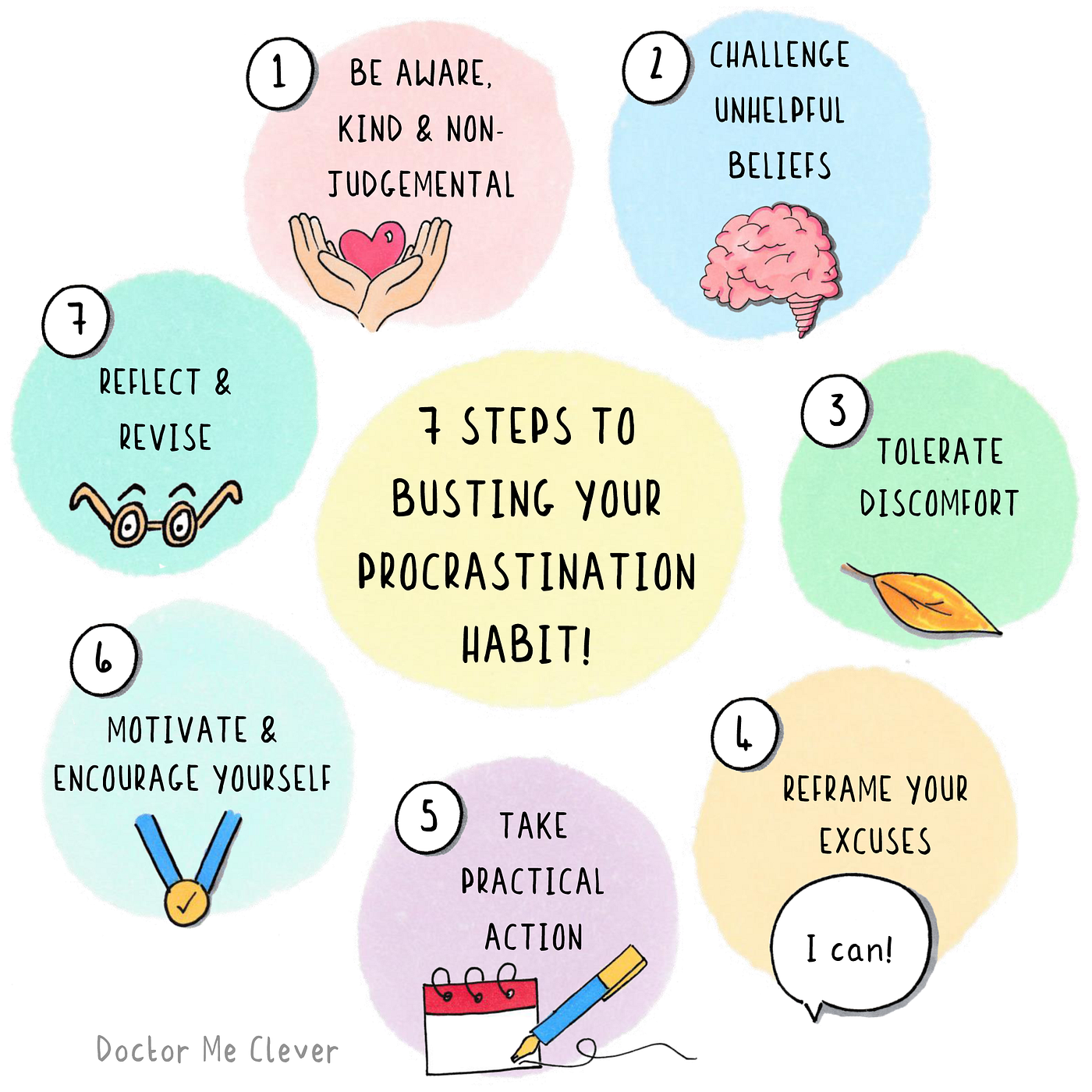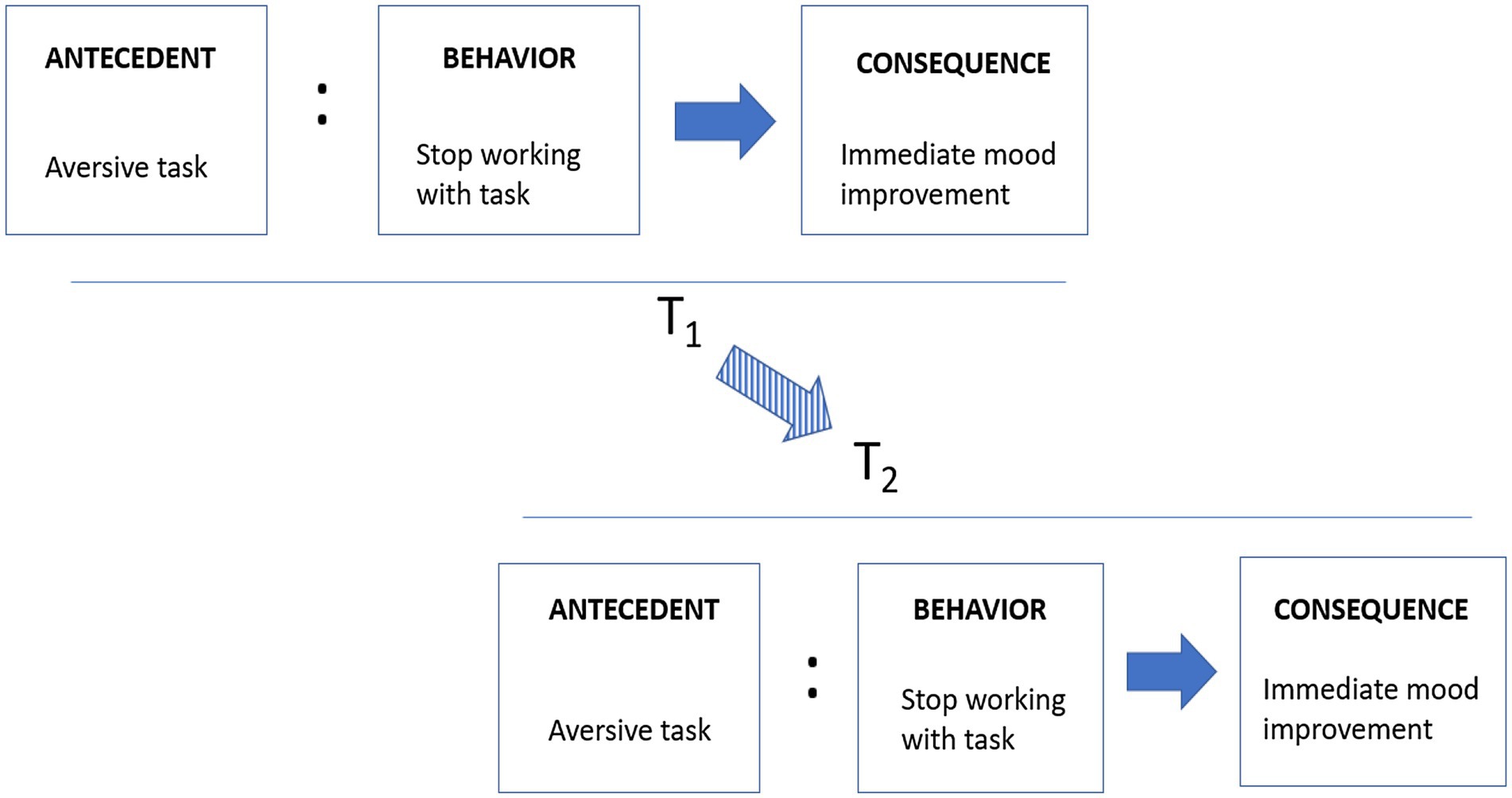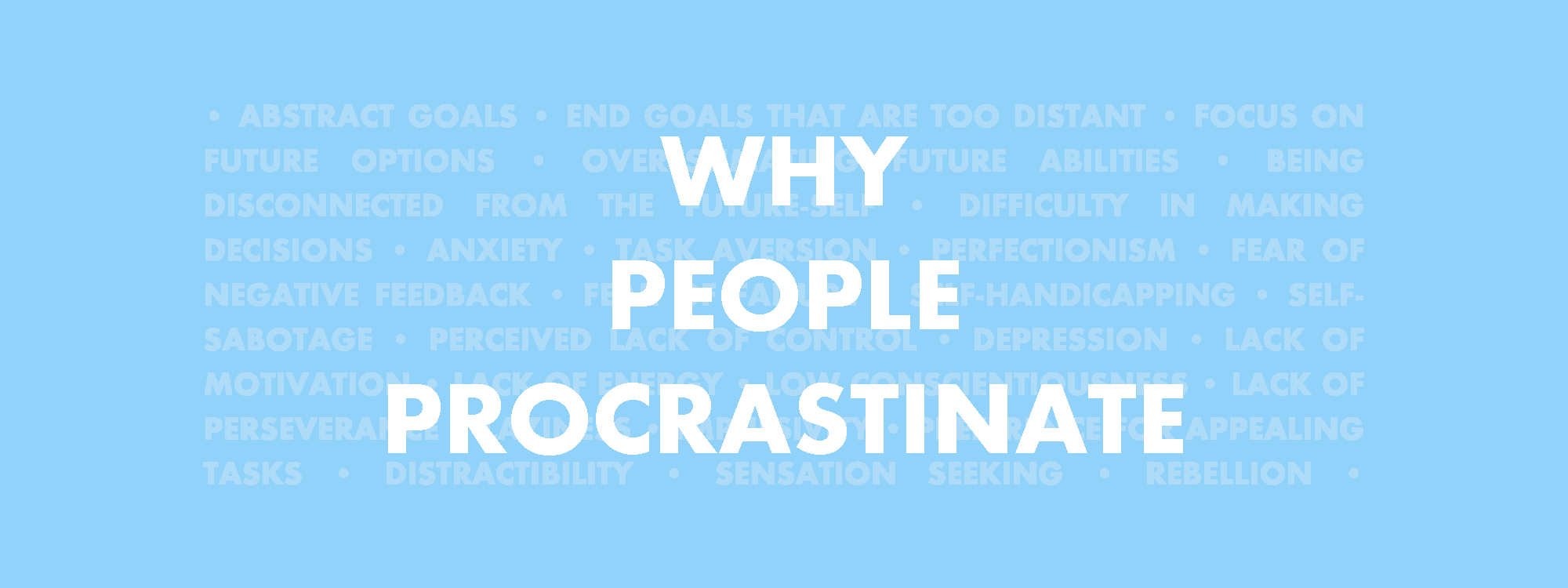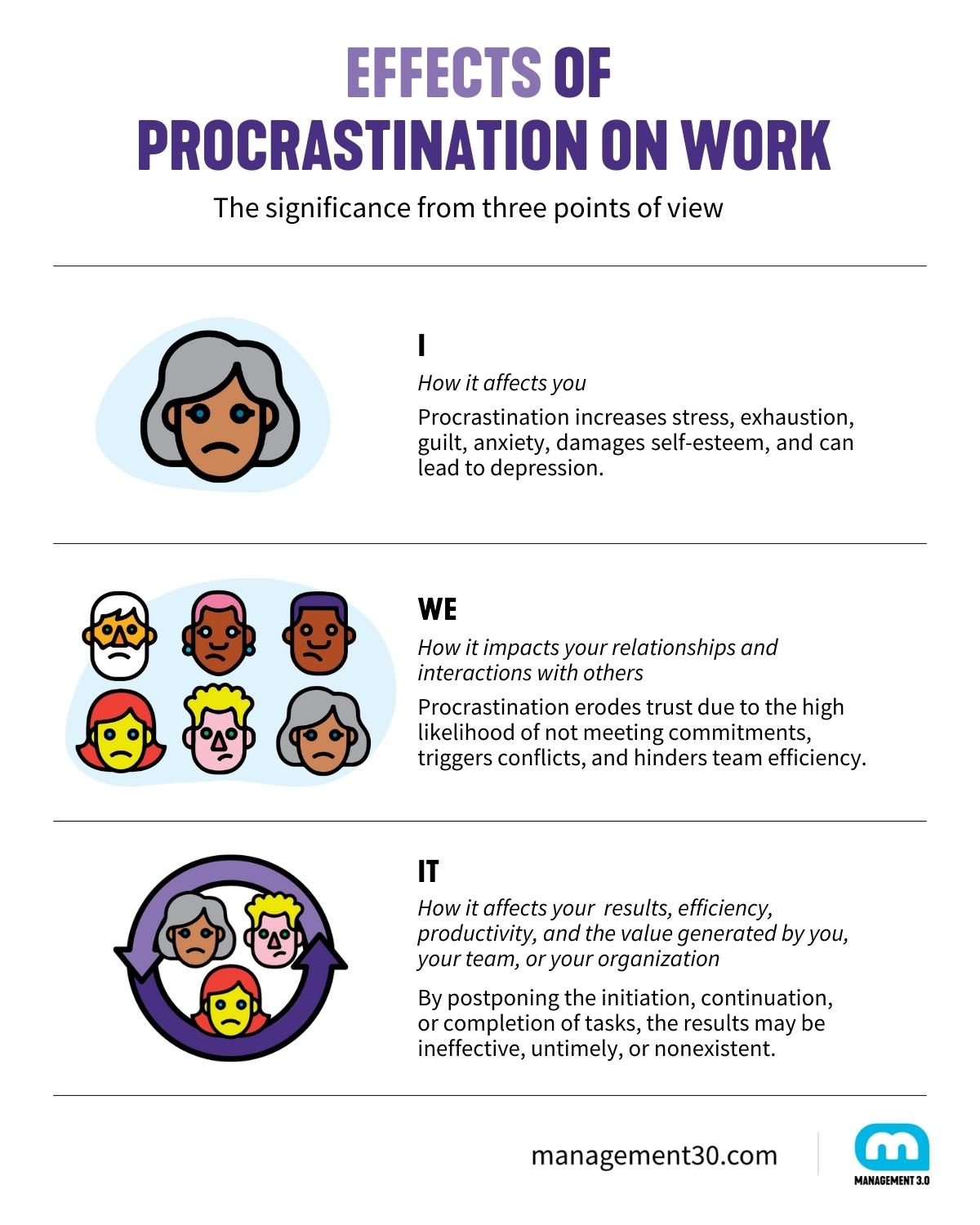The Intriguing Psychology of Procrastination: Understanding and Overcoming Chronic Delay
In a world that praises efficiency and productivity, procrastination emerges as an enigmatic shadow, paradoxically ubiquitous amongst us. Yet despite its prevalence, few topics garner as much frustration and self-reproach. This persistent deferral of tasks is not simply a matter of time management or laziness, but a complex psychological behavior that can have profound implications on one's personal and professional life. In this article, we delve into the cognitions and emotions entwined with procrastination, exploring research that unpacks why we delay, and what strategies can be employed to mitigate its impact.
Procrastination is often mischaracterized as a benign penchant for leaving tasks until the last minute – a quirk many jest about. However, for a significant number of individuals, it's a chronic and pervasive issue. Its roots are not firmly just laziness or poor time management, but are intertwined with emotional regulation and fear—a fear of failure, fear of success, or fear of not being perfect.
The act of delaying important tasks in favor of less urgent or more enjoyable activities is, in essence, an avoidance strategy. Behavioral psychologists suggest that procrastination is a way for individuals to protect themselves from the high expectations they have set and the anxiety of possibly not meeting them. Much of the time, procrastinators are not necessarily avoiding the task at hand, but rather the negative feelings associated with the task.
Dr. Joseph Ferrari, a leading researcher on the subject, differentiates between different types of procrastinators. There are the "arousal types," who wait until the last minute for the euphoric rush; the "avoiders," who may fear both failure and success, and therefore steer clear of judgment from others; and the "decisional procrastinators," who struggle to make a decision, believing this absolves them of the outcomes of their indecision.
Additionally, there's a tendency to view procrastination in the context of time management, but it's equally a mood management problem. The modern notion of "I don't feel like it" takes precedence over "I need to do it," leading to procrastination. This approach is reinforced by a cognitive distortion known as "present bias," where one prioritizes immediate rewards over future benefits, despite the latter often being more valuable.
The pervasiveness of procrastination has been magnified in the digital era. Technology, with its constant pings of notifications and the immediate gratification it offers, provides a fertile environment for the procrastination habit to thrive. The concept of "cyberslacking" – using one's digital device for personal activities during work hours or study – has gained traction and proves the powerful distraction technology poses to our productivity.
Despite its potential downsides, it's important to note that procrastination may have, in certain contexts, adaptive benefits. Some argue that delaying decisions or actions allows for more information to become available, potentially leading to better outcomes. Others suggest that procrastinators are more creative, as the pressure of a closing deadline can fuel innovative thinking and swift pivoting.
Unfortunately, chronic procrastination can carry significant mental health implications. Procrastinators are prone to increased stress, worry, and even depression. The guilt and shame associated with putting off important tasks only serve to reinforce the cycle of procrastination. Studies have suggested that long-term procrastination may even be deleterious to one's physical health by contributing to hypertension, cardiovascular disease, and poor sleep patterns.
Recognizing the underlying causes of procrastination is imperative in developing effective strategies to overcome it. Solutions must extend beyond conventional time management advice and delve into the psychological apparatus that propels people towards procrastination. They must be crafted to address the emotional aspects of procrastination: the fear, the avoidance, and mood-based decision-making that drive procrastinators to choose the path of least resistance.
Stay tuned for the second part of this article, where we will explore specific strategies and interventions that have been scientifically validated to help individuals better understand and manage their procrastination. We will not only look into how restructuring our environment can aid in thwarting the procrastination impulse but also how cognitive-behavioral techniques can reshape procrastinators' relationship with time and productivity, propelling them towards a more effective and less stress-inducing pattern of behavior.
Strategies to Break Free From the Procrastination Paralysis
In most cases, the solution to chronic procrastination does not lie in a new planner or a better to-do list. It resides in understanding and addressing the emotional drivers behind the behavior. The following strategies offer insight into the cognitive and behavioral changes necessary to navigate out of the procrastination trap.
Cognitive-Behavioral Techniques
Cognitive-behavioral therapy (CBT) is widely recognized for its effectiveness in treating various psychological issues, including procrastination. The technique focuses on understanding the thoughts and beliefs that lead to negative behavior patterns. For instance, procrastinators often struggle with perfectionism, feeling that if they can’t do something perfectly, it’s not worth doing at all. CBT helps in identifying such irrational beliefs and challenges them through logical reasoning and behavioral experiments. By adopting CBT techniques, individuals can learn to set more realistic goals and standards for themselves, reducing the fear of failure that often leads to delay.
Time Management vs. Mood Management
While time management is indeed important, re-evaluating one’s approach to tasks from a mood management perspective can be transformative. This might mean breaking down large tasks into smaller, more manageable portions. It can also mean establishing regular, dedicated times for work which can help build a routine. Furthermore, rewarding oneself after completing a task instead of waiting for the task to become more appealing is an effective way to overcome the mood barrier. Introducing immediate, albeit smaller, rewards upon task completion can help counteract present bias.
Mindfulness and Acceptance
Mindfulness can help procrastinators become more aware of their patterns of avoidance. Through mindfulness meditation and exercises, individuals can learn to observe their discomfort without judgment and reduce the impulse to flee to more comfortable activities. Acceptance and Commitment Therapy (ACT), a form of therapy that encourages accepting feelings and thoughts without being dominated by them, can also be beneficial. By embracing the discomfort associated with a dreaded task, the need to escape through procrastination diminishes.
The Five-Minute Rule
One practical trick is the “five-minute rule.” The twist here is to commit to only five minutes of the task. Those five minutes are usually enough to break the inertia and, more often than not, lead to continuing the task beyond the initial commitment. This strategy works because it reduces the psychological barrier posed by large, time-consuming tasks.
Structured Procrastination
For some, structured procrastination can be an intriguing approach. This involves the deliberate delay of tasks, but in a way that still moves other things forward. Famous procrastination scholar John Perry proposes we can harness the power of procrastination by structuring our to-do list in such a way that by procrastinating one task, we are compelled to complete others that are slightly less urgent but still necessary.
Goal Setting and Visualization
Furthermore, the practice of setting clear, achievable goals and visualizing the outcomes can counteract procrastination. Visualizing the steps required to complete a task, as well as the feelings of satisfaction upon its completion, can be a motivational force. Breaking goals down into smaller objectives also helps, as it provides a clear roadmap toward task completion and reduces overwhelm.
Environment Design
Lastly, tweaking our environment can drastically reduce procrastination tendencies. Creating a designated work area can signal the brain that it’s time to focus when we are in that space. Limiting distractions by turning off notifications or using apps that restrict access to certain websites during work hours can also be instrumental in forming more productive habits.
In conclusion, overcoming procrastination requires effort. It requires understanding it’s not just about managing time but managing emotions and thoughts. The strategies covered here can be employed to varying degrees, depending on the individual’s unique procrastination profile. Whether it's cognitive-behavioral techniques, the five-minute rule, or structured procrastination, there is hope for the chronic procrastinator. The key lies in consistent application and patience; old habits may take time to overcome, but with the right approach, it is entirely possible to break free from the shackles of delay and achieve a more productive and fulfilling life.



:max_bytes(150000):strip_icc()/GettyImages-495339199-583c5a455f9b58d5b12dcc3d.jpg)






Comments